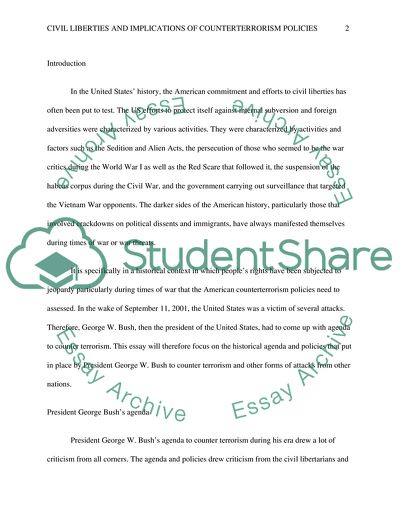Cite this document
(The US Civil Liberties Implications of Counterterrorism Policies Essay, n.d.)
The US Civil Liberties Implications of Counterterrorism Policies Essay. https://studentshare.org/military/1860044-civil-liberties-habeas-corpus-and-the-war-on-terror-american-national-government
The US Civil Liberties Implications of Counterterrorism Policies Essay. https://studentshare.org/military/1860044-civil-liberties-habeas-corpus-and-the-war-on-terror-american-national-government
(The US Civil Liberties Implications of Counterterrorism Policies Essay)
The US Civil Liberties Implications of Counterterrorism Policies Essay. https://studentshare.org/military/1860044-civil-liberties-habeas-corpus-and-the-war-on-terror-american-national-government.
The US Civil Liberties Implications of Counterterrorism Policies Essay. https://studentshare.org/military/1860044-civil-liberties-habeas-corpus-and-the-war-on-terror-american-national-government.
“The US Civil Liberties Implications of Counterterrorism Policies Essay”. https://studentshare.org/military/1860044-civil-liberties-habeas-corpus-and-the-war-on-terror-american-national-government.


